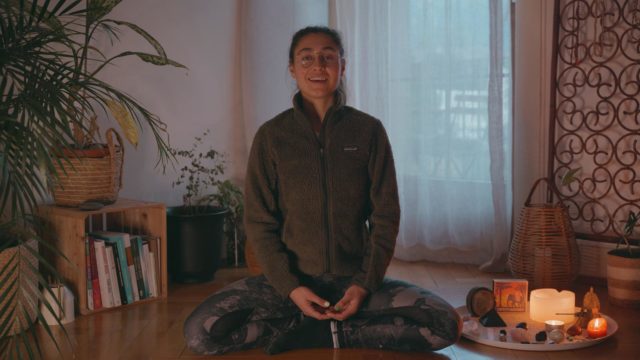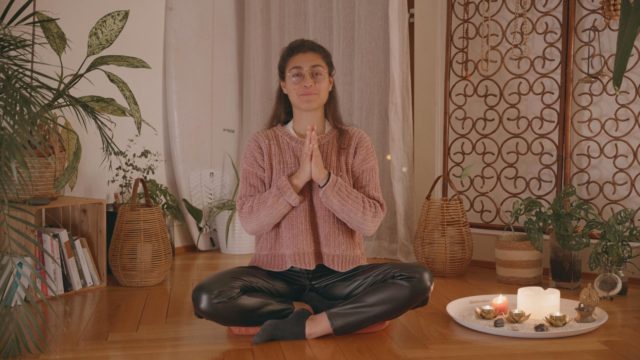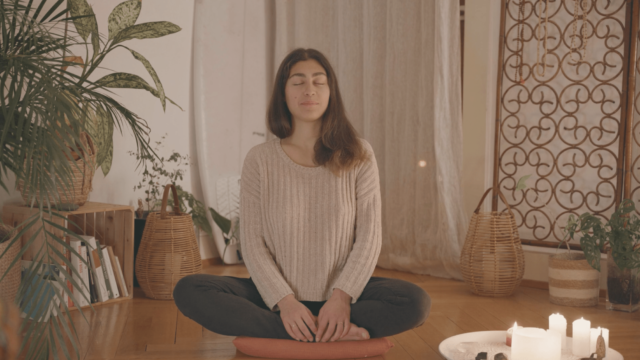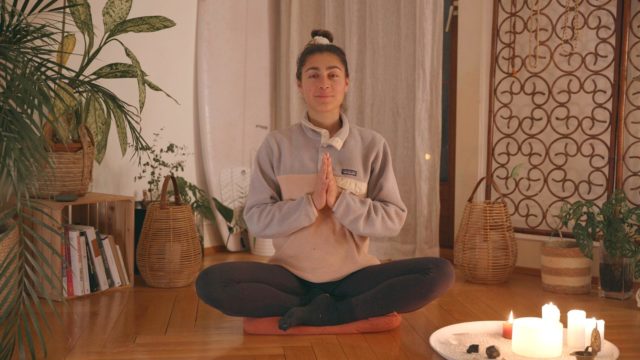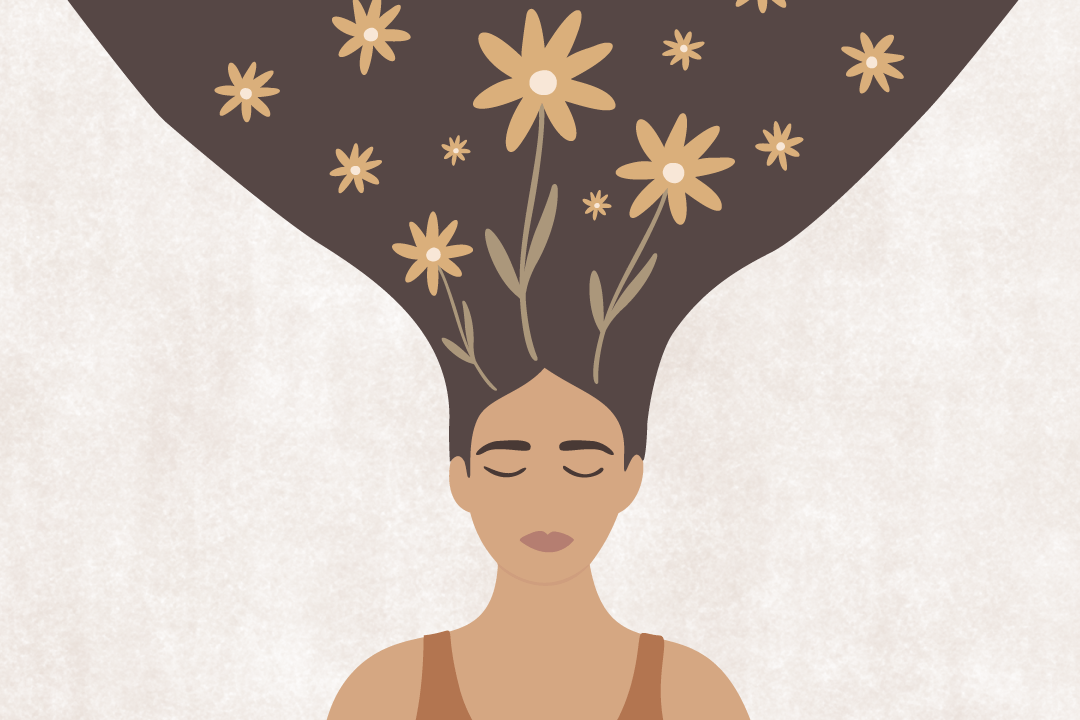Yoga Asanas : Urdhva mukha svanasana

From your Chaturanga Dandasana, untuck your toes while slightly sliding forward with your entire body. Press your feet into the ground.
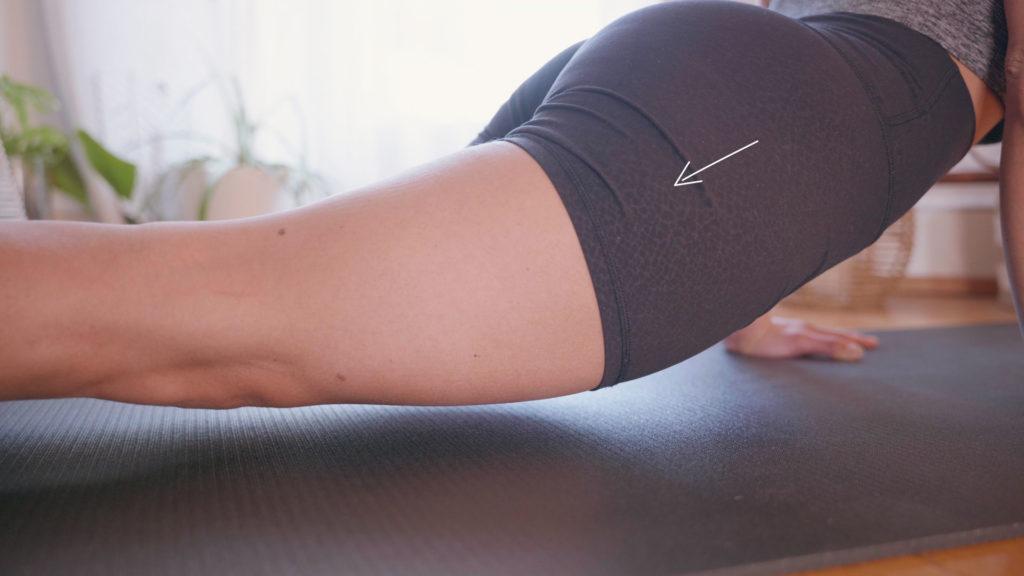
Activate your legs. Imagine your tailbone lengthening to your heels. Feel your thighs hovering above the floor.

Pull your shoulders back and down. They are away from your ears.
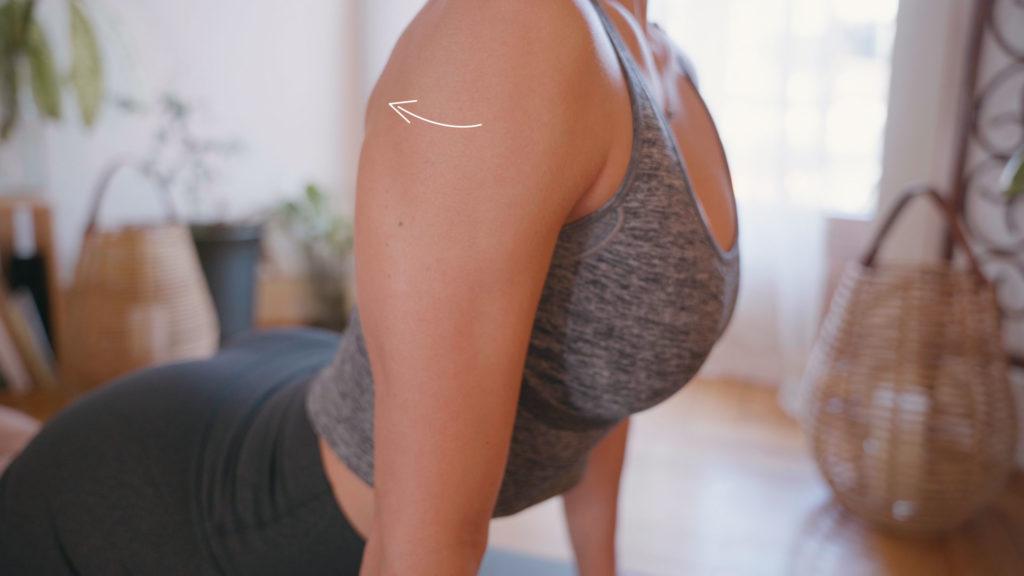
To help you pull your shoulders back, keep a slight bend in your elbows. Imagine that your elbows and hands are pulling back. As you do this, feel your chest moving forward.
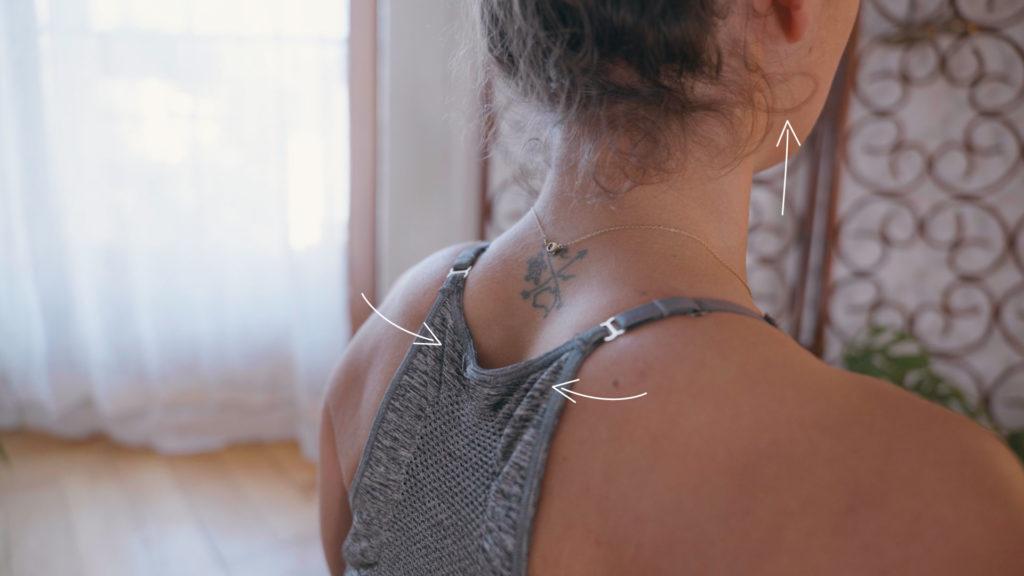
Imagine that you want to squeeze a pencil between your shoulder blades. Keep your neck long.

Tadaaaa!
March growth
Doing good has never felt so good.
Have you ever felt extremely happy and proud because you surprised someone with THE perfect gift? Have you ever felt even more excited than they were, and you couldn’t wait to give them your present? And then they opened it. You saw the sheer joy slowly appear on their face. They just couldn’t believe how amazing this gift was. Even better than what they had ever imagined. And there you were, with pink cheeks actually hurting from all the smiling.
This is the magic of acts of kindness. It makes both the receiver and the giver feel good.
This is because it fulfills the individual’s need for love, acceptance and closeness as well as a feeling of competence. Researchers in positive psychology have even decided that it can be used as an intervention to help boost people’s positive affect and well-being as well as reduce their negative affect.
This month, we encourage you to perform acts of kindness and altruism because they are a great way to spread abundance into the world. Abundance of kindness, happiness, well-being, gratitude, wealth, … And who knows, maybe this will inspire the receivers to do good and create a chain of kindness.
Remember there’s no such thing as a small act of kindness. – Scott Adams
Those acts can be everything and anything. So, let’s get kind, altruistic and creative! You can boost the positive effects by doing more than one act of kindness a day and doing different acts. Lastly, you have to make sure that you don’t feel forced or coerced as it will take away all the positive emotions that normally comes with those acts. You know, this feeling when you HAVE TO gift a present to someone you don’t really want to?! Yeah, that’s definitely not the feelings we’re trying to foster here!
Stone, B. M., & Parks, A. C. (2018). Cultivating subjective well-being through positive psychological interventions. In E. Diener, S. Oishi, & L. Tay (Eds.), Handbook of well-being. Salt Lake City, UT: DEF Publishers.
Sarah D. Pressman, Tara L. Kraft & Marie P. Cross (2015) It’s good to do good and receive good: The impact of a ‘pay it forward’ style kindness intervention on giver and receiver well-being, The Journal of Positive Psychology, 10:4, 293-302
Money and the Key to an Abundant Life

♬ Money, money, money Must be funny In the rich man's world Money, money, money Always sunny In the rich man's world A-ha, ah All the things I could do If I had a little money It's a rich man's world ♬ (ABBA, 1976)
We expect money to make the world funny and always sunny. So many of us put even more pressure on money than we do on our partners (we should also stop this by the way, but this is a conversation for another time). We expect money to bring us happiness, security, stability, abundance, freedom and a sense of control over our life. Money has quite a lot of responsibility, doesn’t it? Too much maybe? We tend to forget that money is just a tool for economic exchange. It is a means to achieve other goals, and definitely not an end in itself.
I mean yes, money does bring security, stability and happiness but only to people who are considered as poor and cannot make ends meet. Not being able to provide for your needs has dramatic negative impacts, such as negative affect (stress, worry, sadness, fear, …), physical and mental illnesses, low psychological well-being, interpersonal relationships, as well as reduced self-worth and performance, amongst others. The list goes on, but you got the idea.
However, once you have reached a certain threshold, where you do not really need to worry about making ends meet, money doesn’t bring you more safety, security, happiness, freedom and abundance. And this is where the annoyingly famous sentence “money can’t buy happiness” becomes true. Despite this sentence being passed down for many years, we keep considering money as a key source of happiness. But that’s a myth.
You can have all the money and still not feel safe, free, let alone happy. It has even been shown that higher incomes are associated with less time doing activities that boost happiness and more time at work. You can have all the money in the world and still feel in constant scarcity, always wanting more because it is never enough. Wealth and abundance are actually an inside and an outside job.
My specialty is the inside job, which is great because that’s the cornerstone of our wealth and abundance. We need to train our mindset and work with our nervous system so that we can welcome wealth and abundance into our lives. Once you have trained you mindset and nervous system, you need to educate yourself on the matter because financial education has a significant impact on financial outcomes. I can only support you with your mindset but for the education part, you should definitely come to the free Women-only afterwork organized by Saxo Bank at Cep D’Or Vevey. (I’ll be a guest speaker, youhou! And there will be free food and drinks). The last thing you need to do is act!
What are your money beliefs?
Once again, we’re coming back to our beliefs. Beliefs about money are typically outside of our conscious awareness and often trans-generational (thank you mom, thank you dad). The worst thing about them is that they significantly influence our financial behaviours. As a result, negative money beliefs are linked to lower income and net worth and disordered money behaviours.
Stop for a second. Think about your beliefs, attitudes and assumptions that you hold about money? Are they positive or negative? Think about your money and your financial state. Do your thoughts tend to be about lack or abundance? Is your body all tensed or relaxed? How are your breath and heart rate? What are the emotions that arise?
Everything is acceptable. Everything is okay. Take a deep breath. Feel them.
Here are some prompts to help you dig deeper into your subconscious.
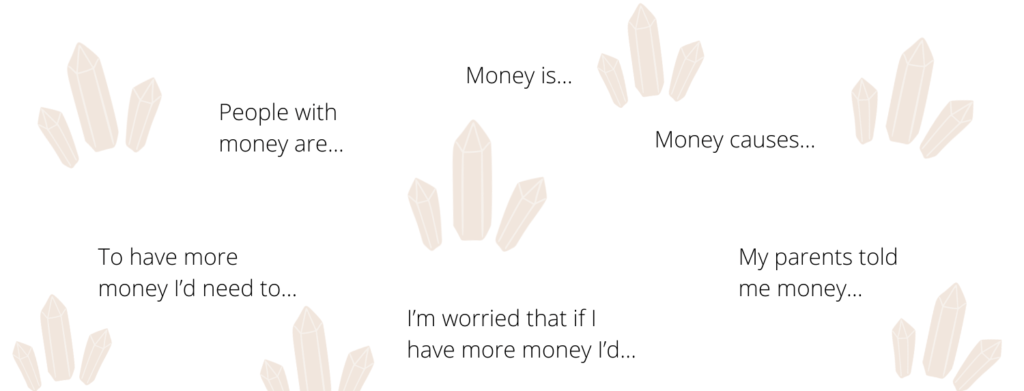
Some of the work I do in coaching is help you swap your negative beliefs with positive ones and find evidence for these new and more adaptive beliefs. Amongst all the negative beliefs that you may hold, one that is very present in our society is that big money and important money matters are only for men. And I mean yes, there is evidence that it’s for men because most high-level positions in companies are filled by men. But studies have shown that companies with women in high-level positions are actually thriving compared to the ones run by men. We can find similar results for women investors. This is because women do not act as impulsively as men and are more risk conscious. “Money Money Money, must be funny, in a rich man’s world”. What if we changed that? I don’t want to live in a rich man’s world. I want to live in a rich woman’s world. That’s why we need to change our mindset, educate ourselves and take actions.
Welcome wealth and abundance right now
If money doesn’t make us feel safer, happier, freer and more abundant, what does? There is no quick fix. It is constant work until it becomes a habit and a lifestyle.
1) Calm your nervous system
If you want to feel truly safe, you first need to feel calm in your body. Because of the way our society works (praising overwork, high demands, always reachable, …), and depending on your life experiences (traumas), your body probably believes that there is a constant threat. As a result, you never feel truly feel safe and experience constant stress. Your body responds to this stress by activating your sympathetic nervous system. Your heart rate is high, your muscles are tensed, and your breath is short. You are ready to fight or flight. This physiological response is useful, unless it lasts for too long (hello burnout). The aim is to come back to a parasympathetic state, where your body feels safe and can rest. To help you calm your nervous system, try activities such as meditation, yoga, EFT tapping, bee breath (brahmari). If you are used to constant stress, it will be uncomfortable to sit still, do these activities and rest. Try, re-try and try again. You can do it and it will get easier.
2) Boost your happiness hormones!
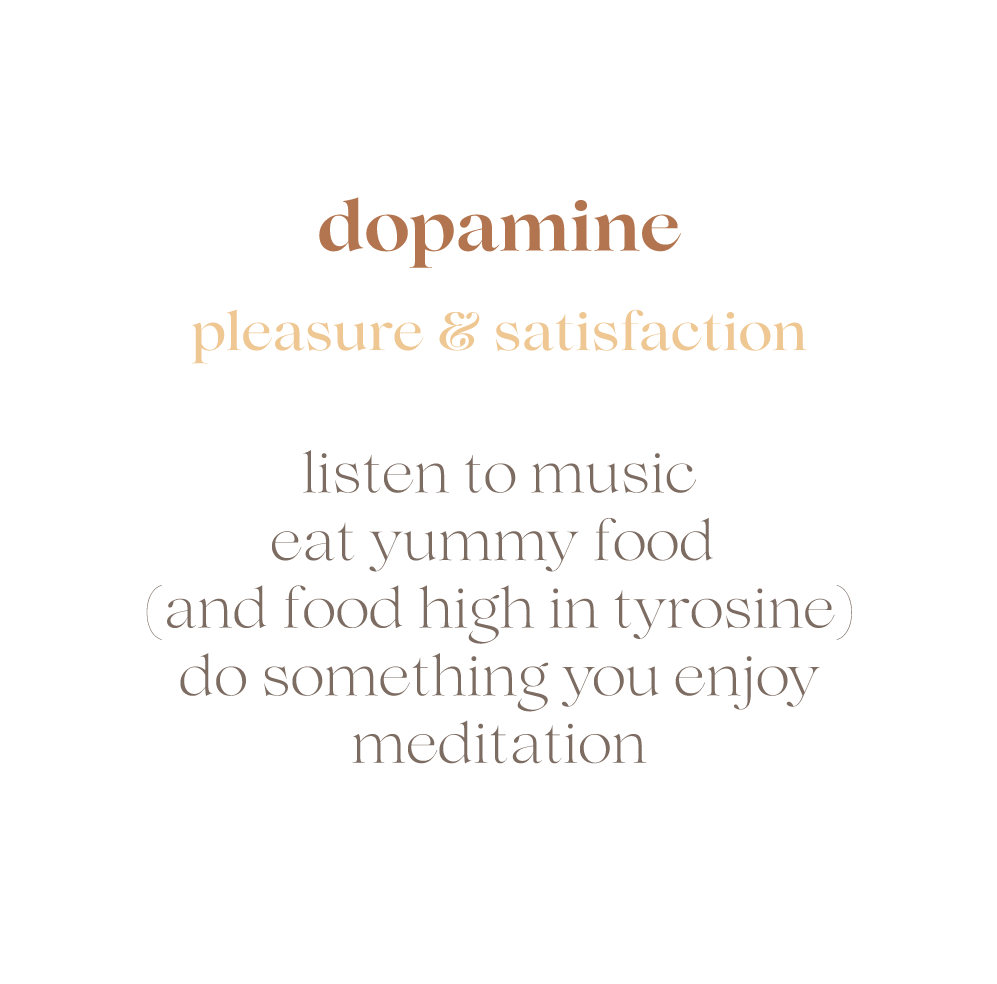
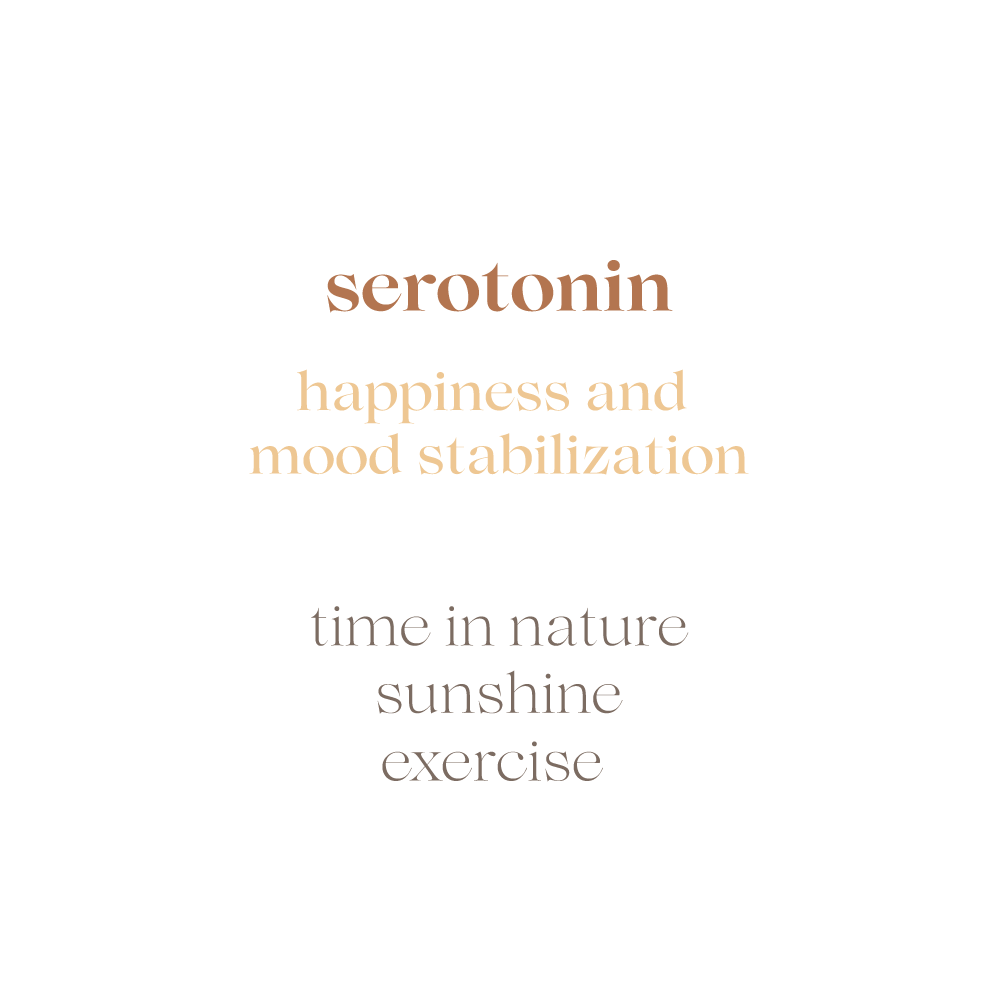


3) Invite abundance
Gratefulness is the root of experiencing abundance. Throughout your day, simply pause and observe the abundance in your life, be gratefully and fill your cup with it. Abundance of love, friendship, beauty, … Observe the litters of water flowing freely out of your shower first thing in the morning. Be grateful. There are so many things that we take for granted and this kills our sensation of abundance. Finding small pleasures in your everyday life is a safe way to happiness. You can also write your 3 “gratefuls” before going to bed or share them with your friends.
A second thing to do is connected to our money beliefs and slightly more challenging. Believe that you deserve abundance. Abundance of money, time, space, love, … Most of the time we believe that we are only worthy of the bare minimum and we need to change this.
Don't chase, but make space to welcome abundance.
Some more tips
Look for friendship and love!
Placing high importance on money is linked to lower life satisfaction, while placing high importance on love does the opposite! Having more money than needed should be a welcomed byproduct, not an end goal!
Go do that bungee jump you have always dreamt of!
Spending money on possessions makes us less happy than spending money on experiences and memories. Moreover, the more materialist you are the less well-being you experience.
Of course, you can buy yourself flowers like Miley but buying them for your dear friend will make you happier!
Spending money on yourself makes people less happy than spending money on others.
Move through the world with the heart in gratefulness and the mind in desire.
Wanting more and calling in more abundance is okay, as long as you stay deeply grateful for what you have.
Move through the world with the heart in gratefulness and the mind in desire.



